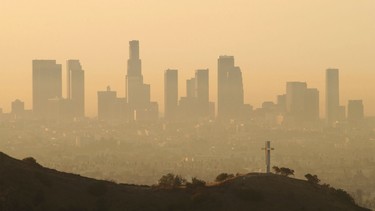Technology
U.S. EPA Reconsiders Greenhouse Gas Regulations Amid Controversy

The U.S. Environmental Protection Agency (EPA) is set to reassess its stance on the dangers posed by greenhouse gas emissions, a move that could significantly alter the landscape of American environmental regulations. According to a report from Reuters, this reconsideration aims to challenge the scientific consensus that these emissions threaten public health, potentially undermining the legal framework that has supported major climate regulations in the country.
The implications of this decision could be profound. By questioning the established science, the EPA may find it easier to dismantle regulations that currently limit emissions from vehicles, industry, and energy production. Lee Zeldin, the EPA Administrator, previously indicated during his confirmation hearing that while the agency holds the authority to regulate greenhouse gases, it does not have an obligation to do so. Following this, he announced over two dozen deregulatory actions, framing them as efforts to challenge what he termed the “climate-change religion.”
Ross Vought, the White House budget director, described the review of these regulations as “long overdue,” suggesting that existing rules have negatively impacted the economy. This sentiment comes at a time when the international community is increasingly focused on the urgent need for emission reductions. On August 6, 2023, the International Court of Justice issued an advisory opinion stating that greenhouse gas emissions represent an “existential threat” and urged countries to collaborate on concrete targets for reducing emissions.
A spokesperson for the EPA confirmed that a proposal regarding this reassessment was submitted to the White House Office of Management and Budget for review on June 30, 2023. The spokesperson noted that public comment will be sought once the review process is complete and the proposal is approved by the Administrator.
Legal experts have expressed serious concerns regarding this potential shift. Sean Donahue, a lawyer representing environmental groups in Supreme Court cases, criticized the EPA’s actions as “a shocking dereliction of a clear statutory duty to protect the public” and an “indefensible denial of overwhelming science.” He labeled the situation as a “national embarrassment,” highlighting the significant backlash that could arise if the EPA moves forward with its reconsideration.
The backdrop to this situation is the landmark 2007 U.S. Supreme Court ruling, which affirmed the EPA’s authority under the Clean Air Act to regulate greenhouse gas emissions. The Court mandated that the agency must determine whether these emissions endanger public health. In 2009, the EPA concluded that emissions from new motor vehicles contribute to pollution and pose a threat to public health and welfare, a finding that was upheld through various legal challenges.
Given the history of legal scrutiny surrounding greenhouse gas regulations, it is likely that similar challenges will emerge in response to the EPA’s latest actions. The United States remains the largest historical emitter of greenhouse gases and currently ranks as the second-largest emitter globally, following China.
As the situation develops, there are no indications yet regarding the possible reintroduction of leaded gasoline or other controversial practices, but the environmental community is poised to respond vigorously to any regulatory rollbacks that threaten public health and the environment.
Readers are encouraged to stay informed on this evolving issue and its potential ramifications for public health and environmental policy.
-

 Politics4 weeks ago
Politics4 weeks agoSecwepemc First Nation Seeks Aboriginal Title Over Kamloops Area
-

 World5 months ago
World5 months agoScientists Unearth Ancient Antarctic Ice to Unlock Climate Secrets
-

 Entertainment5 months ago
Entertainment5 months agoTrump and McCormick to Announce $70 Billion Energy Investments
-

 Science5 months ago
Science5 months agoFour Astronauts Return to Earth After International Space Station Mission
-

 Lifestyle5 months ago
Lifestyle5 months agoTransLink Launches Food Truck Program to Boost Revenue in Vancouver
-

 Technology3 months ago
Technology3 months agoApple Notes Enhances Functionality with Markdown Support in macOS 26
-

 Lifestyle3 months ago
Lifestyle3 months agoManitoba’s Burger Champion Shines Again Amid Dining Innovations
-

 Top Stories2 months ago
Top Stories2 months agoUrgent Update: Fatal Crash on Highway 99 Claims Life of Pitt Meadows Man
-

 Politics4 months ago
Politics4 months agoUkrainian Tennis Star Elina Svitolina Faces Death Threats Online
-

 Sports5 months ago
Sports5 months agoSearch Underway for Missing Hunter Amid Hokkaido Bear Emergency
-

 Politics5 months ago
Politics5 months agoCarney Engages First Nations Leaders at Development Law Summit
-

 Technology5 months ago
Technology5 months agoFrosthaven Launches Early Access on July 31, 2025





















